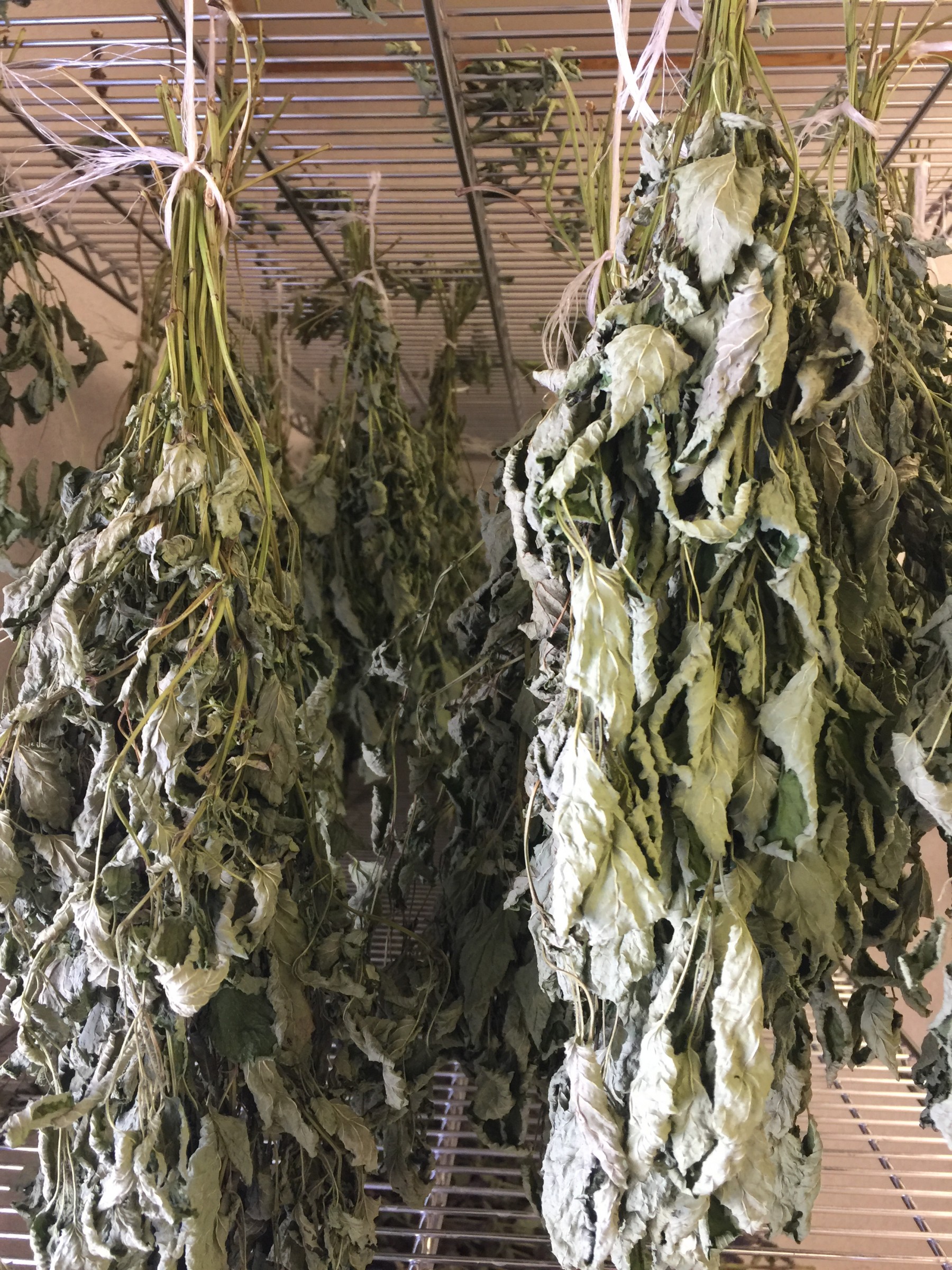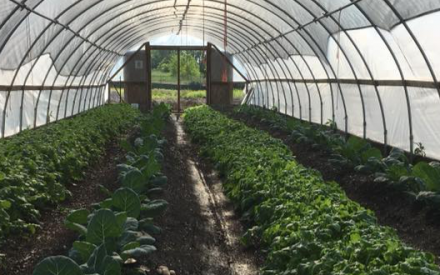Native food sovereignty is the right of American Indians, Alaska Natives and Native Hawaiians to produce their own traditional foods on their own lands to sustain themselves, their families and their communities. Native Americans had food sovereignty for thousands of years before the first European contact in the Americas. Food systems have dramatically changed to the detriment of Native peoples’ health.
-First Nations Development Institute
We are exploring the development of a statement that acknowledges this land’s First Nations people. This statement would be used to open discussions and educate the public we work with about First Nations peoples’ rights and the contributions First Nations have made and continue to make throughout this land now known as Wisconsin.
Food Sovereignty
“Indigenous Food Sovereignty in Wisconsin,” by Dan Cornelius, a UW Madison CIAS presentation.
Webinar – Food Sovereignty and the Role of Extension: Partnerships that Work, 2019 This webinar provides an introduction to food sovereignty, looking at how and why this principle is used in different First Nations communities. Jennifer Gauthier, Menominee Nation, and Brian Kowalkowski, College of Menominee Nation, describe how they have worked together on food sovereignty projects. Learn how the partnership developed and key elements of a partnership that promotes food sovereignty.
Tribal Food Sovereignty-Native Nations Team There are many paths to strengthening cultural resiliency within Wisconsin’s Native Nations. The UW-Madison Division of Extension Native Nations Team focuses on Tribal food sovereignty education as the framework for building cultural resiliency within Wisconsin’s Native Nations because of the holistic way this issue connects people to the land, language, health and culture.
Tribal Nations of Wisconsin
Bad River Band of Lake Superior Chippewa
Wisconsin Bad River Reservation Federally Recognized Tribal Extension Program (FRTEP) Project The Bad River FRTEP project will continue to strengthen the health and resiliency of over 200 youth through linked educational programs that engage youth in producing and consuming seasonal food, build understanding of traditional foodways, and strengthen knowledge of language and culture. Dylan Jennings, Bad River Tribal Council member said, “We have lost teachings, lost identity with our language and harvesting practices. This funding has helped; it has done miraculous things. People are using language; elders and youth are together talking about the old ways.” And former Tribal Chair Mike Wiggins added, “Kids see themselves as food producing dynamos and that increases their quality of life through opportunities like Take a Hike and finding edibles on the trail. The kids are being conditioned and taught in a healthy way.”
The Extension approach to improving the Bad River youth population’s individual relationship to food and health includes all of the components of growing, harvesting, cooking, preserving, demonstrations and public events, and meaningful youth involvement. Educational programs address youth development in addition to improving nutrition and reducing obesity and preserving culture and language.
Natural resources education and conservation, treaty rights, and connection to place and culture are closely intertwined in the Bad River community. Ojibwe language is rooted in nature and is best learned in the context of natural resources and the environment. Extension is providing youth opportunities to build these foundations through educational programs that connect them to place and culture. Extension has created and continues to develop curriculum and educational approaches that are affecting schools and partner youth-serving programs at Bad River and beyond.
Bad River youth also develop food production and cooking skills that could lead to employment. For example, in the summer of 2017, Bad River Youth Outdoors participants and summer youth workers will have a general understanding of food system development and will have at least 16 hours each of food system work for their resumes. Entrepreneurial opportunities for youth are emerging. Additionally, youth leadership in the context of the 4-H positive youth development approach builds life skills valued by employers.
For more info, please contact Joy Schelble at joy.schelble@wisc.edu or Bad River Food Sovereignty 715-682-7111 ext 1611.
Visit the Bad River Food Sovereignty Gathering Together for Good Food Facebook page.
Bad River Tribal Food Sovereignty There are many food sovereignty projects occurring in Bad River, including the Bad River Gitiganing Community Garden project, which works to feed the people of Bad River in ancient gardening sites. The tribe is also working on re-educating members on how to harvest and prepare wild foods, and providing them with some of the resources to carry this out.
Forest County Potawatomi
Bodwéwadmi Ktëgan is a farm owned by the Forest County Potawatomi. The farm’s mission is to provide a natural, sustainable source of vegetables, fruits, greens, fish and animal proteins to the tribal community. All products are available to the tribal community and general public.
Ho-Chunk Nation
Whirling Thunder Organic Farm Located on what was once a llama ranch, and then a beef ranch, the goal of the Ho-Chunk Education Department’s Cultural and Community Education Division village garden restoration is to not only feed the community, but to reconnect the Ho-Chunk people, especially youth, with their horticultural heritage and lifestyle.
Lac Courte Oreilles Band of Lake Superior Chippewa
Visit the Lac Courte Oreilles Ojibwa Community College Sustainable Agriculture research Station (LSARS) Facebook page. The mission of LSARS includes having LCOOCC students learn and work with staff, other students, community members, and elders in a sustainable agricultural setting to increase access to healthy, nutritious foods. The college recently supplied LSARS with a new commercial kitchen complete with pots, pans, canning supplies, and dehydrators for food processing. Community members are welcome to process their produce for home use and local markets. Learn more about the Lac Courte Oreilles Band of Lake Superior Chippewa.
Lac du Flambeau Band of Lake Superior Chippewa Indians
The mission of the Lac du Flambeau Band of Lake Superior Chippewa Indians is to provide leadership for the betterment of tribal membership and descendants in the areas of health, education, welfare, economic/job development and the protection of natural resources.
Menominee Indian Tribe of Wisconsin
Menominee County/Nation: Building Food Policy from the Inside Out (PP slides) Jennifer Gauthier, Community Development Educator, provides an overview of her food and nutrition policy work in Menominee Nation/County. In addition to policy development, she highlights the importance of community context, centering community values and strengths, relationship development and community engagement.
Kemāmaceqtaq: We’re all Moving, Extension Menominee Nation/County. The National Centers for Disease Control and Prevention (CDC) awarded the University of Wisconsin-Madison Division of Extension $2.5 million over five years to work with partners to improve the health of current residents in Menominee Nation/County. This project employs evidence-based strategies grounded in Menominee cultural practices to address chronic health problems in the community. The project focuses on increasing access to healthier foods and expanding access to safer locations for physical activity.
The College of Menominee Nation (CMN) is taking steps towards strengthening food sovereignty on the Menominee Indian Reservation located in Wisconsin.
Department of Agriculture, and Food Systems (DAFS) provides regulatory oversight, assistance, and development support to individual, institutional and tribal agricultural and food system initiatives to support sustainable and resilient food and economic diversification systems. DAFS strives to implement food and agricultural systems that improve tribal health, wellbeing, and economic diversification on the Menominee Reservation.
Oneida Nation
Oneida Community Integrated Food SystemThe Oneida Community Integrated Food Systems (OCIFS) group is here as a team to help families by housing a community food system that will include traditional food products and help create a local economy that will provide jobs, and promote and encourage long term solutions to farm and nutrition issues on the Oneida Reservation.
The Oneida Cannery is a Cultural Program of the Oneida Nation of Wisconsin that processes traditional foods for the nation as well as assist community members with preservation methods through traditional and conventional teachings.
Red Cliff Band of Lake Superior Chippewa
Mino Bimaadiziiwin Farm MINO BIMAADIZIIWIN GITIGAANIN (RETURN TO THE GOOD LIFE FARM) understands food and agriculture as an important piece of tribal sovereignty and is dedicated to supporting the needs of the Red Cliff community. The farm consists of 35 acres including approximately one acre of dedicated garden space and three acres of apple orchards. The rest of the acreage includes forest, open pasture, and a two-acre wetland site.
Red Cliff Fish Company & Processing Facility freshwater fish wild-caught in the pristine waters off the Apostle Islands, processed at our state-of-the-art facility in northern Wisconsin, and available through a variety of wholesale and retail channels, including our onsite market. Owned and operated by the Red Cliff Band of Lake Superior Chippewa, Red Cliff Fish Company supports a Tribal community that has fished these waters for countless generations.
Mole Lake (Sokaogon Chippewa Community) Band of Lake Superior Chippewa
The Sokaogon Chippewa Community, Mole Lake Band of Lake Superior Chippewa, is located in the Town of Nashville, in Forest County, Wisconsin. The Reservation lies southwest of the city of Crandon, nestled among Mole Lake and Rice Lake.
Saint Croix Chippewa Indians of Wisconsin
Learn about the St. Croix Chippewa Indians of Wisconsin iThe Tribe is one of the largest employers in Northwest Wisconsin with over 2,000 employees in its Government center, casinos and enterprises.
Stockbridge-Munsee Community Band of Mohican Indians
Visit the site of the People of the waters that are never still.
Brothertown Indian Nation
Learn how six tribes have stayed together through consensus leadership.
Resources and Tools
Tribal Food Sovereignty & Food Production: A Resource for Indian Country
This directory includes 125 funding resources and other means of support for individual Native food producers, tribal nations and organizations working to establish, grow and sustain their food production, sovereignty and security efforts.
Great Lakes Indian Fish & Wildlife Commission (GLIFWC)
Great Lakes Region Intertribal Agricultural Council
American Indian Traditional Foods in USDA School Meals Program: WI Farm to School Toolkit
This toolkit provides guidance for administering school meals programs in Wisconsin so that farm-to-school programs and traditional foods may be implemented into school cafeterias, classrooms and gardens. This will give American Indian students the opportunity to experience the use of their traditional foods in the school breakfast and lunch programs, all while promoting positive, healthy eating habits.
Food Sovereignty Assessment Tool
First Nations Development Institute. The Food Sovereignty Assessment Tool (FSAT) assists Native communities in reclaiming their local food systems. It helps demystify the process of data collection about local food systems and provides tools and a framework for Native communities to measure and assess food access, land use and food policy in their communities.
Kemēcemenaw: Tribal Extension Partnerships That Support Indigenous Food Sovereignty on the Menominee Indian Reservation eFieldbook
This project takes a deep dive into sovereign food production, exploring the impact that workshops and seed and plant distributions have on the presence of Indigenous food being sold at community Farmers Market’s and CSAs. Log in to LInkedIn to access the eFieldbook.
GATHER – First Nations Development Institute
Intertribal Agriculture Council (IAC)
The Intertribal Agriculture Council was founded in 1987 to pursue and promote the conservation, development and use of our agricultural resources for the betterment of our people. The IAC has, over the last three decades, become recognized as the most respected voice within the Indian community and government circles on agricultural policies and programs in Indian country.
Native American Food Sovereignty Alliance (NAFSA)
Indigenous SeedKeepers Network
The Indigenous SeedKeepers Network promotes Indigenous culturally diversity for future generations by collecting, growing, and sharing heirloom seeds and plants.
Journal of Agriculture, Food Systems, and Community Development: Indigenous Food Sovereignty in North America
Indigenous Food & Agriculture Initiative
The Indigenous Food & Agriculture Initiative at University of Arkansas focuses on putting tribal sovereignty in food sovereignty, promoting tribally driven solutions to revitalize and advance traditional food systems and diversified economic development throughout Indian Country. IFAI provides Tribal governments, producers, and food businesses with educational resources, policy research, and strategic legal analysis as a foundation for building robust food economies.
Land Rematriation & Reparations Resources
Sogorea Te’ Land Trust is an urban Indigenous women-led land trust based in the San Francisco Bay Area that facilitates the return of Indigenous land to Indigenous people. While the focus is on returning Sogorea Te’ Land there are examples of land rematriation near and far.
SOUL FIRE FARM Reparations Map The food system was built on the stolen land and stolen labor of Black, Indigenous, Latinx, Asian and people of color. Members of the Northeast Farmers of Color Network (midwest included) are claiming our sovereignty and calling for reparations of land and resources so that we can grow nourishing food and distribute it in our communities.


 Black and African American food sovereignty resources
Black and African American food sovereignty resources Racial justice in food systems - learning resources and tools
Racial justice in food systems - learning resources and tools COVID-19 WI Food Cart and Food Truck Vendor Resource Guide
COVID-19 WI Food Cart and Food Truck Vendor Resource Guide How to accept FoodShare (SNAP) benefits at your farmers market
How to accept FoodShare (SNAP) benefits at your farmers market


